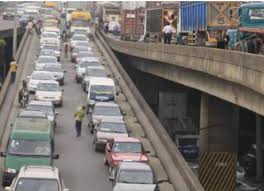Tension is rising in Lagos after the Amalgamated Union of Motor Mechanics and Technicians of Nigeria (AUOMMATON) accused state-backed agents of forcefully demolishing 15 legally approved workshops at Otumara Mechanic Village in the Costain, Ebute-Metta area. The union, backed by the Nigeria Labour Congress (NLC), is calling the act a “fraudulent land grab” carried out under the guise of urban renewal.
The demolition, which happened on March 7, 2025, has displaced over 100 artisans, including panel beaters, auto-electricians, welders, and air-conditioning technicians. The affected workshops were part of a government-approved mechanic village established as far back as 1980 during the administration of Governor Lateef Jakande.
Union leaders said the land was legally allocated by the Lagos State Ministry of Transportation in 1989, with the artisans paying ground rent and adhering to state policies for over four decades. Now, they allege that private interests are using government agencies to seize land meant for informal workers who support Lagos’ transportation sector.
At a press conference held on June 27, NLC Lagos Chairperson Agnes Funmi accused unnamed state officials of frustrating the union’s attempts to reach Governor Babajide Sanwo-Olu.
“We’ve written several letters, but we believe they’ve been intercepted. The governor may not be aware,” Funmi said. “This is not just about mechanics; it’s about justice for everyday workers.”
The demolition was preceded by a series of official notices. On February 11, the Lagos State Building Control Agency issued contravention notices to parts of Otumara. The union responded with proof of legal occupation, and the workshops were initially bypassed. But on February 18, another notice came, this time from the Ministry of Physical Planning and Urban Development, giving a two-day eviction deadline. After another intervention, that notice was withdrawn.
However, union leaders say on March 7, bulldozers, accompanied by armed security men and “hoodlums”, stormed the site and demolished the workshops without warning. Artisans were chased away at gunpoint.
Julius Lawa, Lagos Chairman of AUOMMATON, said, “This is not just a demolition. It’s an erasure of our existence. These workshops were legal, approved, and essential to Lagos’ economy.”
State Secretary of AUOMMATON, Abdul Yusuf, said, “This was a calculated attack. Private interests are hiding behind government machinery to take what belongs to the people.”
When contacted, Onyebola Akintobi, Deputy Director at the Ministry of Physical Planning, declined to speak on the matter and directed inquiries to the Permanent Secretary. Calls and messages sent to Lagos State Commissioner for Information, Gbenga Omotoso, were unanswered.
At the same press conference, lawyer Jiti Ogunye, who pledged to represent the union, called the demolition a direct contradiction of Lagos’ own urban policy. “The Otumara Mechanic Village was one of several established to move roadside artisans into structured spaces. What’s happening now undermines that vision,” he said.
He warned that the Land Use Act, which allows the government to take land for public use, must also recognise the rights of informal workers. “Public purpose is not just hospitals or roads; it includes livelihoods,” Ogunye said.
The NLC and AUOMMATON say they are exploring both protest and legal action. “If necessary, all Lagos workers will rise up in solidarity,” said Funmi. “We urge the governor to either relocate the artisans or allow them to continue their work.”
The union earlier hired lawyer Paul Ogunnubi, who wrote to the governor on March 19, 2025, and again on May 5, without receiving any reply.
The case is already sparking broader concerns about the growing tension between urban development and the rights of informal workers in Lagos. With the state contributing over 30% of Nigeria’s GDP, it faces pressure to manage rapid expansion while avoiding social exclusion.
“This is about more than just Otumara. It’s about the future of working people in Lagos,” Ogunye added.
